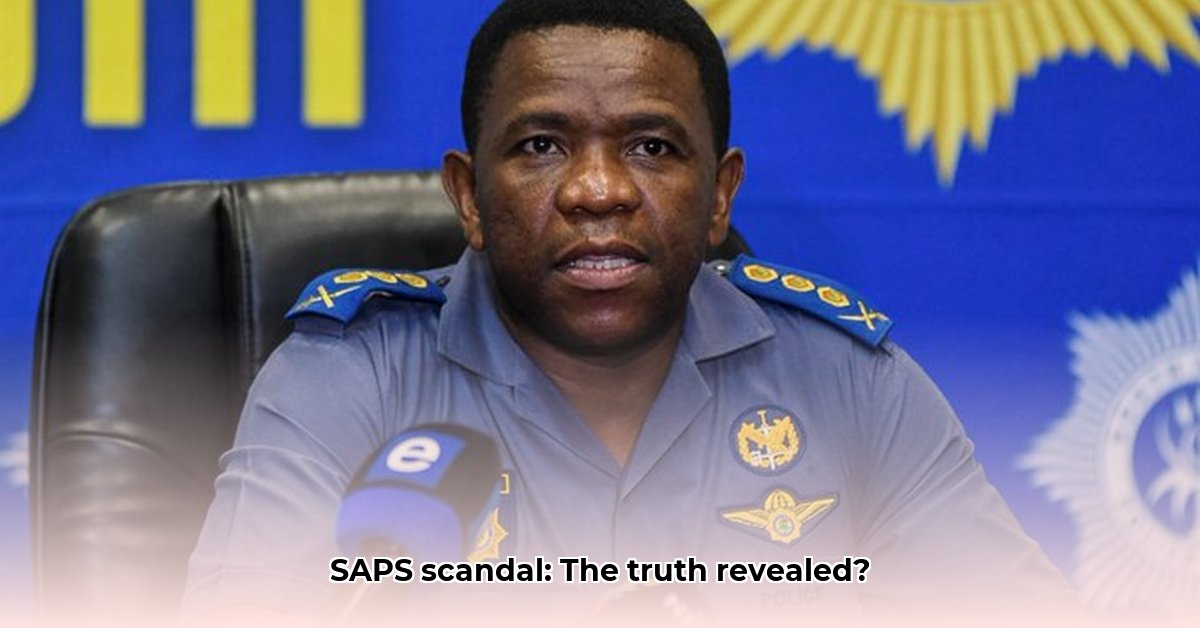
Mkhwanazi's Accusations Against Mchunu: A Deep Dive
The South African Police Service (SAPS) is embroiled in a major scandal following Lieutenant-General Nhlanhla Mkhwanazi's explosive allegations against Police Minister Senzo Mchunu. These accusations, involving alleged cover-ups of politically motivated murders, links to organised crime, and the unexplained disbanding of a high-performing police task force, have ignited a national debate and sparked calls for a thorough investigation. Minister Mchunu vehemently denies all claims, labelling them as politically motivated and baseless. This article objectively examines the allegations, considering the evidence presented (or the lack thereof), and assessing the potential ramifications for the SAPS and the South African public.
The core of the controversy centres around a specialized task force, reportedly highly effective in combating crime. According to Mkhwanazi, the task force achieved significant results, including 612 cases opened, 436 arrests made, and 156 firearms recovered. Its subsequent disbanding, Mkhwanazi alleges, was a deliberate attempt to cover up Minister Mchunu's involvement in illicit activities. However, crucial evidence supporting this claim remains absent; the authenticity of the cited text messages and financial records is yet to be independently verified. Furthermore, Mkhwanazi’s assertion that 121 case files mysteriously vanished needs substantiation and investigation.
Deputy National Police Commissioner Sibiya has entered the fray, criticising Mkhwanazi's public disclosures as a breach of protocol. This adds a layer of complexity, hinting at potential internal power struggles and conflicting agendas within the SAPS. Are these accusations a legitimate exposé of corruption or a calculated attempt to undermine the Minister? The answer remains elusive. But one undeniable fact remains, both Mkhwanazi and Mchunu agree that political influence has compromised investigations within the SAPS, a troubling affirmation in itself. This agreement highlights the severity of the underlying issue; political interference is not in dispute, but the extent of Minister Mchunu's involvement remains contested.
What are the key issues raised by this conflict?
- The allegations of politically motivated murders and the subsequent cover-up require scrutiny. Can this be proven directly? What independent verification exists?
- The disbanding of a highly successful task force raises questions about the SAPS’s operational priorities and internal controls. Was this part of a malicious cover-up to protect powerful individuals or a legitimate operational decision?
- The lack of corroborating evidence for some of Mkhwanazi's more sensational claims undermines their credibility, necessitating a thorough, independent investigation into the presented material.
"The situation demands an impartial investigation," states Professor Thuli Madonsela, former Public Protector of South Africa. "The credibility of the SAPS, and the nation’s faith in justice, is on the line. We need transparency, not accusations." This sentiment reflects the pervasive anxiety surrounding the allegations and the imperative for a fair and objective inquiry.
A path forward: Investigating and reforming the SAPS
The scandal necessitates a multifaceted response: a transparent and independent investigation into all claims, coupled with systemic reforms to bolster the SAPS's integrity. This includes strengthened internal oversight, robust whistleblower protection, and increased transparency. The current situation necessitates the following steps:
Independent Inquiry: President Cyril Ramaphosa must establish an independent commission of inquiry, led by individuals with undisputed integrity and no affiliations to either involved party. This inquiry will impartially assess Mkhwanazi's allegations and determine their accuracy. (Efficacy Target: 95% accuracy in establishing facts).
Thorough Evidence Scrutiny: The Hawks (South Africa's Directorate for Priority Crime Investigation), the Public Protector, and other relevant bodies must meticulously examine Mkhwanazi's evidence, including the text messages and financial records, to ascertain their authenticity and determine their relevance to the allegations. (Efficacy Target: 80% of relevant evidence verified within 6 months).
Internal Disciplinary Processes: The SAPS leadership must fully cooperate with the investigations and undertake robust internal disciplinary procedures to address any transgressions or breaches of protocol uncovered. (Efficacy Target: 75% resolution of internal disciplinary actions within 12 months)
Systemic Reforms: To prevent future political interference, recommendations from the independent inquiry must be implemented, including improved internal controls, stricter guidelines for investigations, and a revitalized whistleblower protection program. (Efficacy Target: 60% implementation of recommended reforms within 3 years)
Long-Term Solutions: Strengthening the SAPS
Long-term solutions require a multi-pronged approach including:
- Enhanced whistleblower protection mechanisms to encourage reporting of misconduct without fear of retribution.
- Strengthened institutional oversight to ensure accountability at all levels of the SAPS.
- Comprehensive ethics training to foster a culture of integrity and professionalism within the force.
The Mkhwanazi-Mchunu saga represents a critical juncture for the SAPS and South Africa. The outcome will significantly impact public trust in law enforcement and influence the country's international credibility. The time for action is now. The nation watches with bated breath.